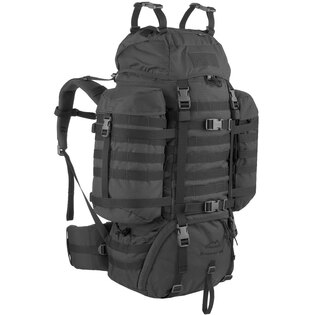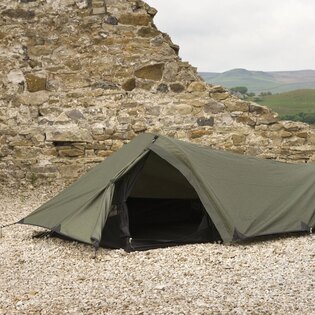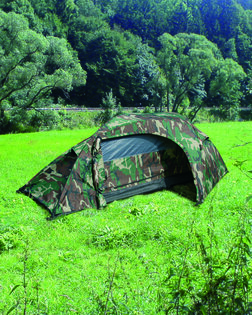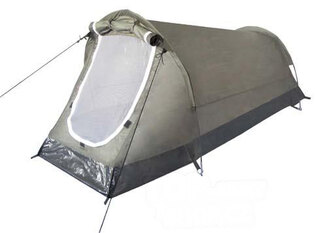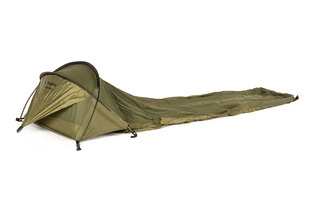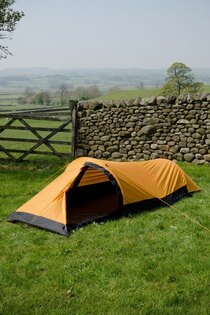Motivation on the go
When you go on outdoor trips, do you travel alone or with someone? Both of these options have their pros and cons, especially when such trips last three days or more. While you can get cabin fever while walking in a pair, being alone and feeling alone is even harder.
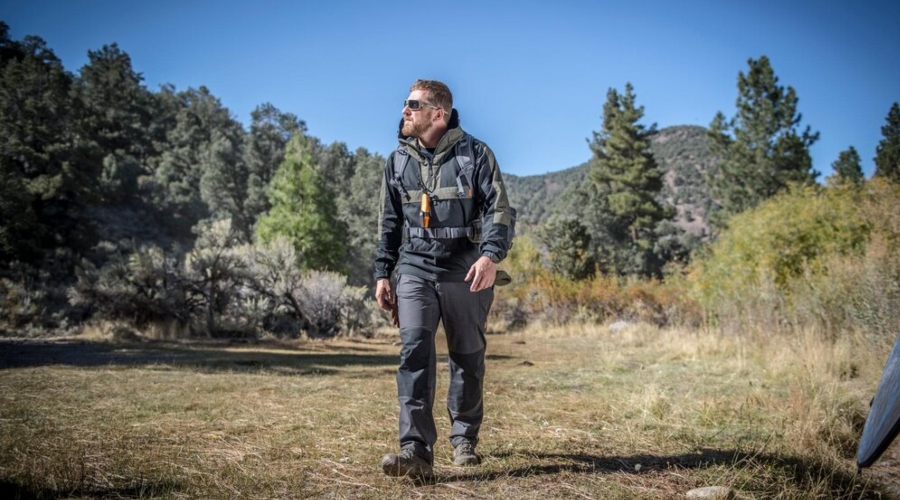
At the same time, most novice trampers and tourists are mainly afraid of the physical side. That their body will not be able to handle the demanding trip. But the most important place in which it is determined whether you complete your planned route or give up is your head. A change of environment and a situation where you leave your comfort zone are challenging, especially mentally.
Sooner or later you will struggle with losing motivation. Why am I doing this anyway? Shouldn't I have preferred to spend my vacation at home and go to a pub/cafe in the evenings? Or pay all-inclusive by the sea and not worry about anything? Now the mosquitoes bite me, I'm hot/cold, my socks are falling apart, I'm tired, my sleeping bag got wet last night and I already smell even to myself... do you know similar thought processes in yourself? How to nip them in the bud and how to get internal motivation to continue and complete the set mission?
Prepare ahead
Half of the success of the expedition is thorough preparation at the beginning. Regardless of the length and difficulty of the route. Of course, the longer the route and the more challenging the current (for example, weather) conditions, the more you will have to prepare. The key is logistics, which consists of planning what you will pack for the trip, where you will find food and water along the way, how heavy your backpack will be, and where you will compromise on what to bring and what not to bring.
Beginner hikers should also take into account their physical readiness and adapt the daily portion of kilometers in the given terrain to their abilities. However, definitely do not stay in your comfort zone at all costs. Gradually push your boundaries. But we emphasize—gradually. Blowing it right at the start is a definite shortcut to mission failure.
Choose viable challenges that are maybe 10 or 20 per cent more challenging than last time. If you embark on a hike that is clearly beyond your physical capabilities, you are not only taking a risk, but it is also quite possible that failure will damage your confidence and stifle your desire to push the limits.
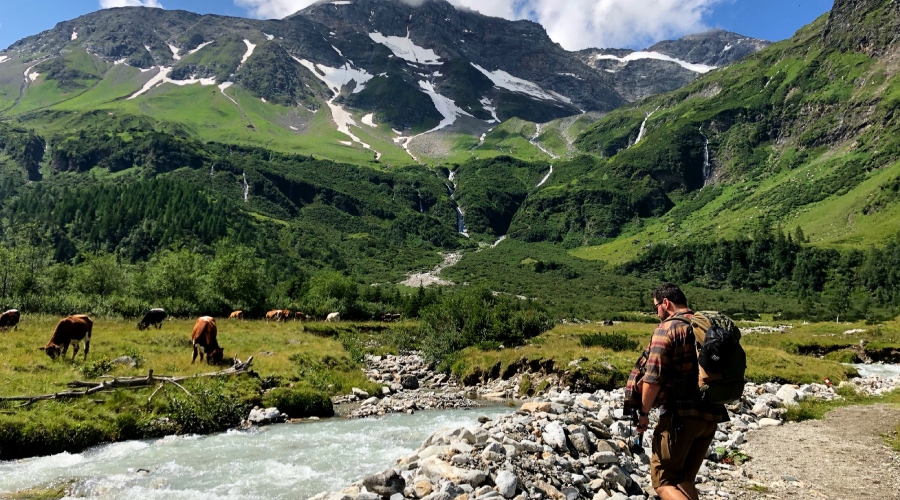
If you are going to march tens of kilometers a day for several days in a row, prepare for such a hike in advance and physically. Go for a run, strengthen, do cardio, do balance exercises, swim... it will help you not only on the hike itself, but also in everyday life. Just before the hike, go on a one-day trail anywhere in your area. Take with you a load corresponding to the weight of your backpack, or preferably a few kilos heavier.
Be prepared for negative experiences that you may encounter along the way, whether it is bad weather, a minor accident, or the fact that you stumble and get your entire backpack wet while fording a stream. Such situations without preparation can disgust you to continue the hike, but if you take them as eventualities in advance, they will not put you down so much mentally.
Why do we go hiking?
The way we plan our hikes, whether we go alone or with someone, the length of the route, whether the route itself goes around populated areas or avoids them... all of this in some way reflects the reasons why we go out into nature in the first place.
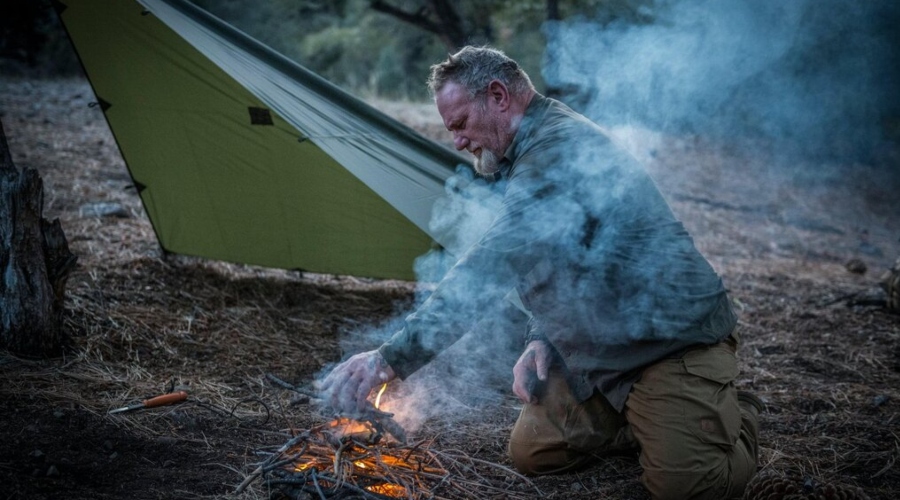
Maybe we want to prove something to ourselves or those around us. Maybe we are running away from ourselves, from a dysfunctional relationship, from problems in the family. Maybe you want to find yourself on the contrary, go through the transformation that you missed in your life, change something in your life. To go to the edge of your abilities and possibilities, to find your current limits... or you simply "just" like nature and its peace and quiet and you don't care at all whether you will be there alone or with someone else. You like to photograph nature or look for new connections in it. Either way, it's okay.
There are routes that change us. Whether it is marches through places where history was written (whether in a positive or negative sense of the word) or long ridge trails lasting several weeks, it always changes our perception of the world and our personality at least a little. We dare say that in the vast majority of cases for the better. However, you should better define your primary reason in advance.
It matters how you feel
We have already trained physical resistance, but what about the mental one? Mental unpreparedness is one of the reasons why people on long hikes decide to end prematurely. It is interesting that the more days you are on the road, the more the physical factors fall away as the main reasons for the premature end of the journey and are replaced by psychological ones. In other words, you will probably end up on the first 10 percent of the route because you underestimated your physical capabilities. But in the last 50 percent, the head is to blame for the failure in most cases.
Your personal preferences will also determine whether you will go on the trip alone or in pairs (or with more people). Long trails can usually take several weeks and you have to be aware of what that entails when you decide to spend such a long time (mostly) alone. There is naturally a difference between being alone and being lonely—and that's mostly in your mindset! It's up to you how you feel about your solo journey, but most of us can't avoid at least temporary doubts in such a case.
And most importantly—on a solo route you will be alone with your thoughts. The average person has tens of thousands of individual thoughts every day. And thoughts make who we are. It is therefore necessary to work in advance to ensure that these thoughts are positive. At least most of them. Not only are negative thoughts bad for our mental and physical health, they can also reduce our motivation levels to zero in certain cases. And you definitely don't want that somewhere in the middle of a hundred-kilometer route.
But definitely don't continuously count how much you still have ahead of you. Break your hike into short sections and focus on sub-goals. Thanks to this, you will not be demotivated again if the pace of the march is not to your liking. If you like to do statistics, then it is better to calculate the average hourly speed only after returning home. At the same time, plan your route at least in outline. Tell yourself where you want to be in a week and roughly how many kilometers you would like to walk in the morning and how many in the afternoon. Most of us are more efficient in the morning, which means that we can easily walk two-thirds of the whole day's kilometers by lunch and only the remaining third after lunch.
Internal and external support
We've already talked about the reasons for traveling (whether solo or with multiple people), and it's certainly nice to have them set. But even so, it may happen that you simply lose motivation along the way. For that reason, it is advisable to have someone to act as external support. Of course, this does not mean that you will call such a person every two kilometers and "cry" how bad things are for you, poor little thing!
A support person can suddenly become a person with a switched off phone. And a similar spread of negativism can also negatively affect your relationships, especially if your support is someone close to you, such as a partner. Text home in the evening that you are fine, that is always appreciated. But don't be in constant contact with the outside world. You don't have to be in the forest for this, it's just enough to sit in your favorite cafe.
Call your external support when you're really down. When you're on the verge of breaking down or despairing that you just can't take another step. Not because of physical exertion, but again because of the head. If you have a good relationship with the person on the other end of the line, then he or she will understand the situation and help you. Because he or she can empathically recognize a serious situation from just complaining.
There is one more thing marginally related to this. Most modern smartphones have a battery that does not last very long. In other words, you have to charge it every night during normal use. But there is no place to do it in the nature. At this point you have two options. Either you keep your phone switched off in your backpack and ready only for emergency situations, or you get a backup push-button phone, the battery of which will easily last you fortnight at a time.
If you have a person you can call in a weak moment, you are lucky. But you can have such a person and it doesn't have to be of any use to you anyway. We are talking about cases where you simply do not encounter a signal on your route. In such situations, you simply rely on your inner motivation. This is where it is so important to have a clearly defined reason why you set out on the journey in the first place.
Summary
For any trip, and this goes double for solo expeditions, go in a good mood. Have defined reasons for going outside your comfort zone in the first place, and also have a plan for what you will eat, what you will wear that day, and what you will do if something unexpected happens. These are all things that can keep you internally motivated.
Then have someone who is able to give you external motivation when needed. At the same time, plan the hike according to your abilities. Have a goal, but don't treat the hike itself as a pursuit of that goal. Remember that the journey can be a destination and that your primary goal should be to enjoy the journey. You shouldn't be motivated all the time in your head by the goal of completing the route at all costs.
Divide your hikes into shorter sections and follow this division as a framework. Your goals should be attainable, but at the same time they should be motivating and you should surpass your previous achievements by at least a few percent. Also, have a clearly defined reason when you set out on your journey. And finally—if you suddenly lose motivation during the trip, force yourself to get up and go anyway. Maybe you're just having a bad day and tomorrow you'll see things completely differently. Once it clears up, you might end up regretting your decision to end your trip prematurely.
Readers are further interested



































































































